Email Insights: Donald Trump says Hillary Clinton has failed America’s vets

With no holds barred and in one of his lengthiest campaign emails to date, presumptive Republican presidential nominee Donald Trump goes for the jugular on his opponent Hillary Clinton’s history with veterans, saying under her “failed leadership, too many of our nation’s finest died waiting to receive medical help from injuries suffered protecting our country.” Lumping Clinton and the Barack Obama administration together, Trump cites several examples of how he believes veterans have been mistreated and ignored the past eight years. Pointing out Clinton’s “refusal to acknowledge the ‘widespread’ and ‘systemic failures’ that exist in our VA is only intensifying the problems.” Read Trump’s entire email below: The Clinton/Obama era has been disastrous for our nation’s veterans. Under their failed leadership, too many of our nation’s finest died waiting to receive medical help from injuries suffered protecting our country. Clinton’s refusal to acknowledge the “widespread” and “systemic failures” that exist in our VA is only intensifying the problems. As Americans we need to demand more from our public officials to serve our heroes as they served us. The Clinton/Obama way of enriching bureaucrats who fail our veterans is wrong. THE VETERANS AFFAIRS SENATE REPORT SHOWS “SYSTEMATIC FAILURES” AT VETERANS AFFAIRS MEDICAL CENTERS In May, A Senate Investigation Revealed Widespread “Systemic Failures” By The Veteran Affairs Inspector General’s Review of the Veteran Affairs Medical Center In Tomah, Wis…” “A Senate investigation of poor health care at a Veterans Affairs Medical Center in Tomah, Wis., found systemic failures in a VA inspector general’s review of the facility that raise questions about the internal watchdog’s ability to ensure adequate health care for veterans nationwide … One of the biggest failures identified by Senate investigators was the inspector general’s decision not to release its investigation report, which concluded two providers at the facility had been prescribing alarming levels of narcotics.” (Donovan Slack, “Senate Investigation finds ‘Systemic’ Failures at VA Watchdog,” USA TODAY , 05/31/16) The Probe Found The VA’s Inspector General “Discounted Key Evidence and Witness Testimony, Needlessly Narrowed Its Inquiry and Has No Standard For Determining Wrongdoing.” “The probe by the Senate Homeland Security and Governmental Affairs Committee found the inspector general’s office, which is charged with independently investigating VA complaints, discounted key evidence and witness testimony, needlessly narrowed its inquiry and has no standard for determining wrongdoing.” (Donovan Slack, “Senate Investigation finds ‘Systemic’ Failures at VA Watchdog,” USA TODAY , 05/31/16) “One of The Biggest Failures” Was That The VA IG Failed to Release an Investigative Report That Would Have Forced VA Officials to Publicly Address the Excessive Prescription of Narcotics at The Facility. One of the biggest failures identified by Senate investigators was the inspector general’s decision not to release its investigation report, which concluded two providers at the facility had been prescribing alarming levels of narcotics. The facility’s chief of staff at the time was David Houlihan, a physician veterans had nick-named ‘candy man’ because he doled out so many pills. Releasing the report would have forced VA officials to publicly address the issue and ensured follow up by the inspector general to make sure the VA took action. Instead, the inspector general’s office briefed local VA officials and closed the case.” (Donovan Slack, “Senate Investigation finds ‘Systemic’ Failures At VA Watchdog,” USA TODAY , 05/31/16) The Chief of Staff at A VA Facility Was Nick-Named “Candy Man” For Prescribing So Many Pills. “The facility’s chief of staff at the time was David Houlihan, a physician veterans had nick-named ‘candy man’ because he doled out so many pills. Releasing the report would have forced VA officials to publicly address the issue and ensured follow up by the inspector general to make sure the VA took action. Instead, the inspector general’s office briefed local VA officials and closed the case.” (Donovan Slack, “Senate Investigation finds ‘Systemic’ Failures at VA Watchdog,” USA TODAY , 05/31/16) The Investigation Raised Concerns That The VA’s Watchdog Is Able to Ensure “Adequate Health Care For Veterans Nationwide.” “A Senate investigation of poor health care at a Veterans Affairs Medical Center in Tomah, Wis., found systemic failures in a VA inspector general’s review of the facility that raise questions about the internal watchdog’s ability to ensure adequate health care for veterans nationwide.” (Donovan Slack, “Senate Investigation finds ‘Systemic’ Failures at VA Watchdog,” USA TODAY , 05/31/16) According to The Report, In Three Months “The VA Investigated And Substantiated A Majority Of The Allegations That The VA OIG Could Not Substantiate After Several Years.” “‘In just three months, the VA investigated and substantiated a majority of the allegations that the VA OIG could not substantiate after several years,’ the committee report notes.” (Donovan Slack, “Senate Investigation finds ‘Systemic’ Failures at VA Watchdog,” USA TODAY , 05/31/16) AN INTERNAL VA INVESTIGATION ALSO FOUND WIDESPREAD PROBLEMS An Internal Department of Veterans Affairs Investigation Found That Schedulers Routinely Misreported When Patients Actually Wanted to See a doctor or Receive Care, Making It Impossible to Track Delays. “An internal Department of Veterans Affairs investigation found that schedulers in Texas routinely misreported when patients actually wanted to see a doctor or get some other type of care, making it impossible to track delays in the care they received.” (Will Weissert, “Internal VA Report Finds Misleading Wait Time Data in Texas,” The Associated Press , 3/10/16) The Report Tracked Problems in Clinics and Medical Facilities in Central and South Texas. “The report released Tuesday by the VA’s Office of Inspector General tracks problems in clinics and medical facilities in central and South Texas.” (Will Weissert, “Internal VA Report Finds Misleading Wait Time Data in Texas,” The Associated Press , 3/10/16) According to The Report, Schedulers Listed the First Available Date That a Patient Could Be Seen as The Date That a Patient Had Wanted to Be Seen. “According to the report, schedulers often listed the first available date that a patient could be seen as the date that a patient had wanted to be seen. This meant there was no way to track how much longer those seeking care waited to get it.” (Will Weissert, “Internal VA Report Finds Misleading Wait Time Data in Texas,” The Associated Press , 3/10/16) VA Employees Reported That They Sometimes Engaged in Misleading Scheduling at The Behest of
Barack Obama announces decision to leave 8,400 troops in Afghanistan aids allies
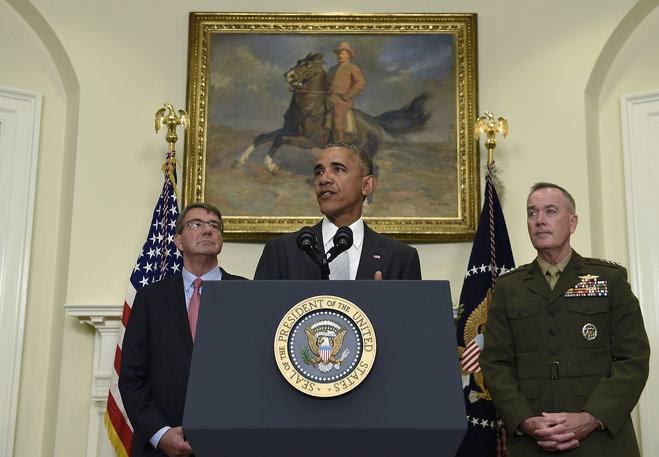
President Barack Obama‘s decision to slow the withdrawal of American troops from Afghanistan will be welcomed at the NATO summit this weekend, providing aid for allied forces in the country and bolstering U.S. efforts to get more pledges of support for the war from U.S. allies. Obama’s move quells lingering questions within NATO about America’s commitment to the ongoing conflict. And it will allow the U.S. military to expand its work with Afghan forces as they face a resurgent Taliban and a troubling presence of Islamic State fighters in the country. The president announced Wednesday that he will leave 8,400 U.S. troops in Afghanistan into 2017, rather than cut the force to 5,500 at the end of the year as initially planned. Military commanders, members of Congress and allied leaders had pressured the administration to maintain the current 9,800 troops in Afghanistan. The issue will be discussed at the NATO summit in Warsaw, including U.S. plans to encourage allies to strengthen their commitments to Afghanistan, with more funding, troops, or other support. Last month, NATO allies agreed to extend their Afghanistan training mission and keep troops in all four sections of the country in 2017. Those decisions shelved earlier plans to consolidate forces in and around Kabul next year, ending the current hub-and-spoke system. The NATO decision, however, relied on the U.S. remaining in Afghanistan to provide security, logistics and other support for the allies, particularly German troops working with Afghan forces in the north and Italian troops doing the same in the west. Defense Secretary Ash Carter told NATO allies last month that the U.S. would continue that support. But U.S. officials quietly acknowledged that maintaining that support would be difficult with only 5,500 U.S. troops, as Obama planned. Obama announced last month that he was authorizing U.S. forces to once again conduct airstrikes against the Taliban when needed in critical operations, and that American troops would accompany and advise Afghan conventional forces on the ground, much as they have with Afghan commandos. Doing all of that with 5,500 troops would be risky, officials said. “It just thins you out enormously, and so you just end up with a multiple higher level of risk,” said retired Adm. James Stavridis, the former NATO commander. “If you go down to 5,500 troops, your risk goes up vertically because your allies don’t stay with you and because you have half the capacity.” Stavridis, now dean of the Fletcher School at Tufts University, added that it would be hard to maintain the hub-and-spoke allied presence in the north and west without keeping at least 8,000 U.S. troops in the country. Obama acknowledged the “precarious” security situation in Afghanistan during his troop announcement at the White House on Wednesday, saying he would not allow any group to use Afghanistan “as a safe haven for terrorists to attack our nation again.” “It is in our national security interest – especially after all the blood and treasure we’ve invested in Afghanistan over the years – that we give our Afghan partners the very best opportunity to succeed,” Obama said. Obama came into office promising to end the wars in Afghanistan and Iraq, but this decision ensures that he’ll leave with the U.S. still enmeshed in conflicts in both of those countries while wrestling with new ones in Syria and Libya. The president said the U.S. mission would remain narrowly focused on “training and advising” Afghan forces and supporting counterterrorism operations against the remnants of al-Qaida, the group that attacked the U.S. on Sept. 11. Republican leaders in Congress who favor a larger force said Obama’s new plan was preferable to the old one, but they criticized him for not keeping the full 9,800. Sen. Lindsey Graham, R-S.C., said the partial drawdown would increase the dangers for the remaining troops, calling it “more a political decision by President Obama than a military one.” Though Obama touted progress in Afghanistan, including better-trained security forces, the situation remains perilous, with Afghan battlefield deaths rising and civilian casualties hitting a record high. Progress in stabilizing Afghanistan has been undermined by the resurgence of the Taliban, which were removed from power in the 2001 U.S.-led invasion but have lately stepped up their deadly attacks. Republished with permission of the Associated Press.
Traveling Vietnam Veterans Memorial Wall replica coming to Ala. July 6
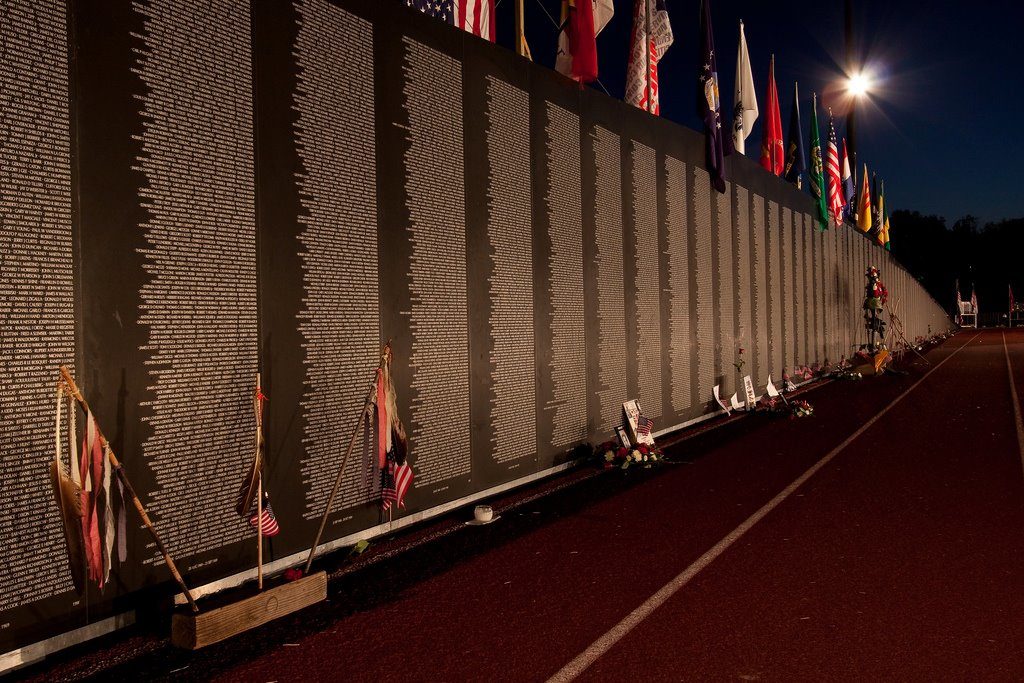
In the wake of celebrating our nation’s 240th birthday, the city of Fultondale is bringing a special Vietnam Veterans Memorial Wall replica to town, giving many Alabamians a once-in-a-lifetime chance to pay their respects to those lost during the Vietnam War. The 360-feet long wall, which is a three-fifths replica of the Vietnam Memorial Wall in Washington, D.C., will be available for the public to visit July 6 to 10 at 3321 Lowery Parkway in Fultondale, a northern suburb of Birmingham. The Vietnam Memorial Wall lists the names of 58,195 veterans — husbands, wives, sons, daughters, and friends — who never returned home from the war. This traveling memorial allows everyone to honor those veterans who made the ultimate sacrifice in the defense of America. The American Veterans Traveling Tribute brings the wall to various communities across the country, providing an opportunity for people who otherwise cannot visit the nation’s capital to pay their respects. This is the first time the wall will be in Fultondale. The family-friendly event is free to the public and includes an kick-off parade, ceremonies to honor Vietnam veterans, as well as Cobra and Huey helicopter rides. Below is the full schedule of events: Wednesday, July 6 Welcoming ceremony 6 p.m.: Parade of the Wall escort (begins at Uptown/BJCC parking lot, north on Highway 31, turn on Walker Chapel Road and then on Lowery Parkway) Thursday, July 7 Noon: Viewing of the Wall begins 3 p.m.: Wreath-laying ceremony Friday, July 8 10 a.m.: Ceremony Huey ($65) and Cobra ($310) helicopter rides Free kids zone Saturday, July 9 10 a.m.: Vietnam flag dedication Entertainment all day Free kids zone Huey ($65) and Cobra ($310) helicopter rides 9 p.m.: Fireworks Sunday, July 10 10 a.m: Church service 1 p.m.: Ride of Honor 2 p.m.: Closing ceremony The city of Fultondale is also in need of volunteers for this four-day event. If you are interested, call Fultondale City Hall at (205) 841-4481 or fill out this online form.
Pentagon revokes controversial transgender ban for U.S. military

Defense Secretary Ash Carter on Thursday removed one of the final remaining barriers to military service by lifting the Pentagon’s ban on openly transgender people serving in the U.S. military. “Effective immediately, transgender Americans may serve openly,” Carter said at a news conference. “They can no longer be discharged or otherwise separated from the military just for being transgender.” Carter continued, “Our mission is to defend this country, and we don’t want barriers unrelated to a person’s qualification to serve preventing us from recruiting or retaining the soldier, sailor, airman or Marine who can best accomplish the mission. We have to have access to 100 percent of America’s population for our all-volunteer force to be able to recruit from among them the most highly qualified — and to retain them.” Alabama 1st District U.S. Rep. Bradley Byrne, a member of the House Armed Services Committee, was quick to weigh in on the Pentagon’s decision. “It is frustrating the Pentagon now has a strategy for transgender service members, but they still lack an actual strategy for defeating radical Islamic terrorism,” said Byrne in a news release. “Once again it seems the Obama Administration is more interested in advancing a political agenda than they are in proposing sound policy.” According to Carter, within 90 days the Pentagon will create a guidebook for commanders on rules regarding transgender service members as well as medical guidance to doctors. Within one year, transgender individuals will be allowed to join the armed forces, provided they have been “stable” in their preferred gender for 18 months, he continued. Lifting the transgender ban was the latest move in a series of controversial cultural changes in the military in recent years — from the 2011 decision to end the “Don’t Ask, Don’t Tell” policy barring gays and lesbians from serving openly, to Carter’s December 2015 decision lifting restrictions on women serving in combat roles. Many critics have called Wednesday’s decision “social engineering” that risks troop readiness and the ability to fight. Family Research Council President Tony Perkins, a Marine Corps veteran, said President Barack Obama was using the military “to fight culture wars.” “This is yet another example of President Obama using America’s military to fight culture wars instead of to fight real wars against the enemies of our nation,” Perkins said in a prepared statement. “Considering the abysmal condition of our military and a decline in readiness, why is this a top priority for the Obama administration?” Perkins continued. “Before changing any policy, the impact on military readiness has to be the first consideration. Defense Secretary Carter has failed to explain how this new policy makes our military more capable of winning wars.” Rep. Byrne shares Perkins’ concern over troop readiness. “As a member of the House Armed Services Committee, I am committed to holding the Obama Administration accountable and ensuring their political agenda does not directly harm our military readiness,” Byrne concluded.
Alabama National Guard unit returning home from Kuwait
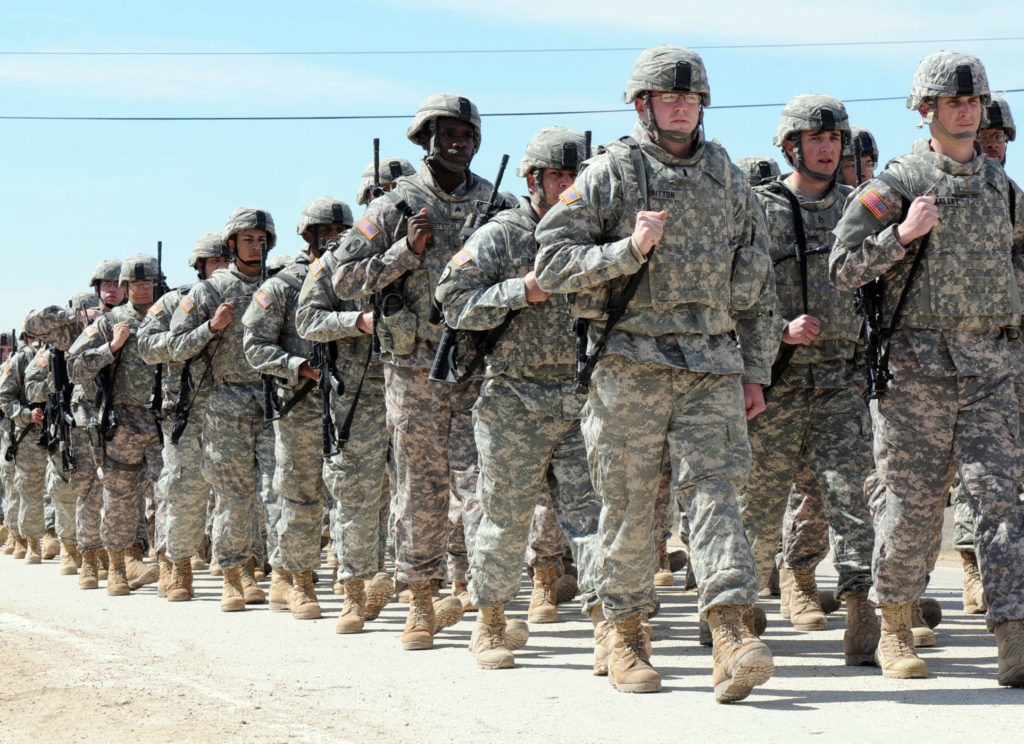
About 100 Alabama National Guard soldiers are expected to return from a yearlong mission based in Kuwait and other countries. Al.com reports that the Company A, 136 Expeditionary Signal Battalion Guard unit is scheduled to return to Huntsville on June 11. The soldiers are returning on a charter flight and will be arriving at Signature Aviation in Huntsville at 10:05 a.m. The unit is based in Arab but has members from across Alabama and other states. The welcome-home ceremony will take place in an aircraft hangar. While deployed, the unit provided tactical and strategic assets to war fighters and other elements within their assigned area of operations. Republished with permission of The Associated Press.
VA Secretary Robert McDonald: Disney doesn’t measure wait times, neither should VA

Veterans Affairs Secretary Robert McDonald compared the length of time veterans’ wait to receive health care from the VA to the length of time people wait for rides at Disneyland, and said that Disney doesn’t keep track of wait times, so Veterans Affairs shouldn’t either as it’s not a valid measure of one’s overall experience. “When you got to Disney, do they measure the number of hours you wait in line? Or what’s important?” McDonald asked reporters Monday during a Christian Science Monitor breakfast. “What’s important is, what’s your satisfaction with the experience? And what I would like to move to, eventually, is that kind of measure.” The comparison brought swift disapproval from Republicans and veterans organizations alike who were none too pleased with Secretary McDonald’s analogy in light of the scandal that exploded two years ago when it was revealed that the VA was attempting to cover up long wait times. Republican Presidential front-runner Donald Trump took a moment to try to gain political traction, saying he would “take care” of America’s vets. Obama’s VA Secretary just said we shouldn’t measure wait times. Hillary says VA problems are not ‘widespread.’ I will take care of our vets! — Donald J. Trump (@realDonaldTrump) May 23, 2016 Wisconsin Republican and U.S. Speaker of the House Paul Ryan ripped into McDonald with a series of tweets saying unlike Disneyland, the VA “is not make-believe.” This is not make-believe, Mr. Secretary. Veterans have died waiting in those lines. https://t.co/OxfT3AYzTi — Paul Ryan (@SpeakerRyan) May 23, 2016 The happiest place on earth? Secretary McDonald compares #VA lines to #Disneyland. Seriously. https://t.co/SmvIKqxGKW — Paul Ryan (@SpeakerRyan) May 23, 2016 There’s no Fast Pass at the #VA. #Veterans seeking medical attention don’t have that luxury. https://t.co/SmvIKqxGKW — Paul Ryan (@SpeakerRyan) May 23, 2016 Concerned Veterans for America called the remarks offensive. “It also shows that he doesn’t even view long wait times and secret wait lists as real problems in need of a fix,” said John Cooper, a spokesman for Concerned Veterans for America. “To compare veterans’ experiences waiting weeks and months for care to tourists waiting in line to see Mickey Mouse demonstrates just how out of touch the secretary is with the struggles many veterans deal with while waiting for care at the VA.” McDonald’s controversial comment was in response to a question as to why the VA won’t publish the average time a veteran has to wait from the day he or she calls and asks for an appointment, known as the “create date.” Instead, the VA publishes its average wait times based on the “preferred date,” or the day a VA scheduler actually puts an appointment time on the books. McDonald went on to explain that the “create date” was not a “valid” measure of the VA’s success.
Alabama delegation votes for $610B defense bill, despite White House objections
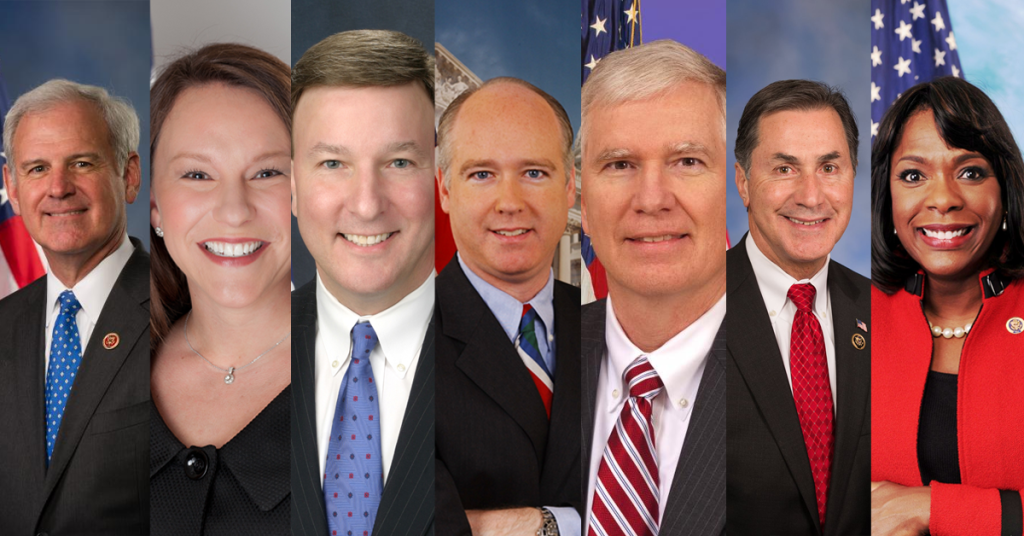
After two days of debate, the U.S. House of Representatives approved a $610 billion defense spending bill by a 277-147 vote late Wednesday night, setting up a summer-long negotiation with their Senate counterparts over necessary military priorities and policy. The bill, H.R. 4909: the National Defense Authorization Act, authorizes spending for military personnel, weapons systems, national security programs, as well as foreign military operations for FY 2017. Additionally, it improves access to quality care for service members, retirees, and their families, while enhancing medical readiness. These reforms make no changes for the current force or retirees. U.S. Rep. Terri Sewell was the sole Alabama House Member to vote against the bill. She joined 147 of her Democratic peers, along with just five Republicans, in voting against the measure. The remainder of the seven-member Alabama delegation — Reps. Bradley Bryne, Martha Roby, Mike Rogers, Robert Aderholt, Mo Brooks and Gary Palmer — voted in support of the bill. Among its many provisions and reforms, the NDAA includes: Military Personnel and Pay: Supports a 2.1 percent pay raise for service members, which is higher than the President’s proposal of 1.6 percent. BRAC: Prohibits another round of base closings. Strengthens Military: Reverses cuts to troop strength; increases investments in training and maintenance programs; and rebuilds crumbling facilities like barracks, hangars, and airfields. Readiness: Makes vital investments in maintenance by including an increase of $597 million for the Navy and Marine Corps, $312 million for the Army, and $430 million more for the Air Force to ensure next-to-deploy units are mission capable. Deterring Russia: Provides funds for more troops and equipment in Europe to deter Russia, as well as additional funds to assist Ukraine. Fighting ISIS: Provides funds to train and equip Syrian fighters and assist Iraqis in retaking Mosul, and adds funds to make sure that Kurdish and Sunni allies can stay in the fight. Commissaries: Reforms the commissary system to preserve the benefit, while also making improvements to ensure continued saving for shoppers, good value for taxpayers, and ongoing support for morale, welfare, and recreational activities. Reforms Uniform Code of Military Justice (UCMJ): Modernizes the Uniform Code of Military Justice to improve the system’s efficiency and transparency, while also enhancing victims’ rights and expands the statute of limitations for child abuse offenses and fraudulent enlistment. Before the vote, the White House issued a veto threat over the bill on Monday due to a number of provisions. A primary White House complaint is that the House bill leaves U.S. war-fighting obligations underfunded, setting the stage for the need of a potential midyear supplemental appropriation. “By gambling with war-fighting funds, the bill risks the safety of our men and women fighting to keep America safe, undercuts stable planning and efficient use of taxpayer dollars, dispirits troops and their families, baffles our allies, and emboldens our enemies,” the White House said in a statement. Meanwhile, House Republicans say the spending plan is critical to ensure the military has the resources it needs, as it wages wars in Afghanistan and against Islamic State militants in Iraq and Syria. Here’s what delegation members are saying about their votes: U.S. Rep. Bradley Byrne (AL-01): It seems like every day a new report comes out about the dire situation our military is in. That’s why it is so important this year’s NDAA makes critical investments in boosting military readiness to ensure we can respond to the wide range of threats facing our country. The bill also makes long-needed reforms to ensure efficiency and accountability at the Pentagon. U.S. Rep. Martha Roby (AL-02): No comment available at this time. U.S. Rep. Mike Rogers (AL-03): This is the 55th consecutive NDAA, legislation that authorizes funding for the Department of Defense and ensures that Congress fulfills its constitutional duty to make sure that our warfighters have the training and equipment that they need. In addition to setting the priorities for our national defense, this legislation also has language that could be important to folks across East Alabama. Rep. Robert Aderholt (AL-04): No comment available at this time. Rep. Mo Brooks (AL-05): In recent years, America’s national security capabilities have been hampered and hollowed out by the unwillingness of Congress and the President to properly fund America’s military. The FY17 NDAA takes a step toward restoring vital funding, modernizing equipment, and providing our warfighters with the personnel and weaponry needed to protect America. In addition, the FY17 NDAA improves accountability by reforming acquisition laws and enhancing cyber security. Rep. Gary Palmer (AL-06): No comment available at this time. Rep. Terri Sewell (AL-07): As a Member of Congress, I am fully committed to ensuring that our brave men and women in uniform have all of the support necessary to protect and defend our great nation from threats both foreign and domestic. My vote on the NDAA in no way undermines that unyielding commitment to preserving our national security, and ensuring our military has the resources that it needs to meet ongoing and emerging threats around the world. However, I am deeply concerned that this bill would set a dangerous precedent by promoting uncertainty for our military at a time when it desperately needs reliable support. … Ultimately, we must put partisan politics aside and pass a defense authorization bill to maintain the safety and security of all Americans. Since President Obama has already indicated his intention to veto this bill, I look forward to working with my colleagues on both sides of the aisle to pass a national defense authorization bill which appropriately funds all necessary government services and military obligations.
GOP-led House moves ahead with bill to boost military budget
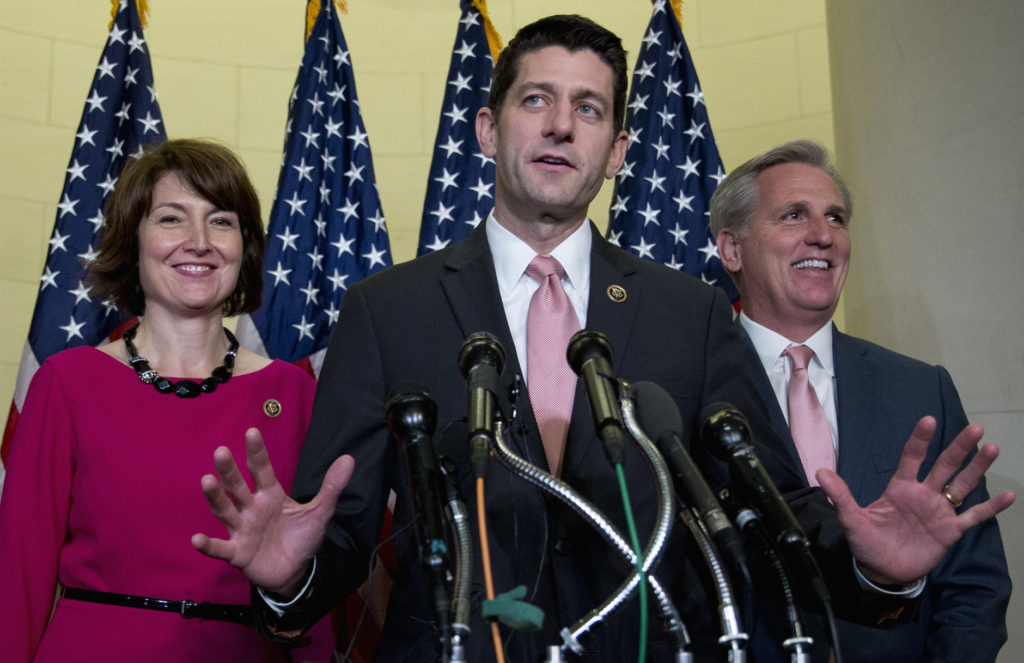
Defying a veto threat, the GOP-led House is pressing ahead with debate on a $602 billion defense policy bill that seeks to halt an erosion of the U.S. military’s combat readiness by purchasing more weapons and forbidding further cuts in troop levels. The legislation also proposes greater oversight of the White House’s National Security Council, prohibits prisoners held at the Guantanamo Bay, Cuba, detention facility from being moved to the U.S., and gives U.S. service members a higher pay raise than the Pentagon recommended. A vote on the bill is expected Wednesday. In a 17-page statement on the policy bill, the White House detailed its objections to numerous provisions and said President Barack Obama would reject the legislation if it reached his desk. Among the measures the Obama administration opposes is a Republican plan to shift $18 billion in wartime spending to pay for additional ships, jet fighters, helicopters and more that the Pentagon didn’t request. To make up for the shortfall in the wartime account, Obama’s successor would submit a supplemental budget to Congress in early 2017, according to U.S. Rep. Mac Thornberry, R-Texas, the plan’s architect and the chairman of the House Armed Services Committee. He and other proponents of the spending increase say it is essential to halt a decline in the military’s ability to respond to global threats that has worsened on Obama’s watch. But Defense Secretary Ash Carter has called the plan a “road to nowhere” that actually degrades combat readiness by retaining troops and buying equipment that can’t be sustained, effectively creating a hollowed out force. In a speech Tuesday, Carter said that the proposal “risks stability and gambles with war funding, jeopardizes readiness, and rejects key judgments of the (Defense) Department.” The House bill would block reductions in the number of active-duty troops by prohibiting the Army from falling below 480,000 active-duty soldiers and adding 7,000 service members to the Air Force and Marine Corps. The legislation also approves a 2.1 percent pay raise for the troops — a half-percentage point higher than the Pentagon asked for in its budget submission. Republicans sidestepped a thorny debate over whether women should be required to sign up for a potential draft after the House Rules Committee stripped from the bill a provision to erase Selective Service gender restrictions. In its place was a measure to study whether the Selective Service is even needed at a time when the armed forces get plenty of qualified volunteers, making the possibility of a draft remote. The U.S. has not had a military draft since 1973, in the waning years of the Vietnam War era. A growing number of lawmakers have suggested abolishing the Selective Service, which costs $23 million a year to operate. “It’s like rethinking dinosaurs,” said U.S. Sen. John McCain, R-Ariz., the chairman of the Senate Armed Services Committee. “They’re not coming back. The draft is not coming back.” Republicans approved an amendment authored by Thornberry to curb what they say is micromanagement of military operations by National Security Council staff. Thornberry said he has personally heard from troops in combat who have received intimidating calls from junior White House staffers even though their role is to coordinate policy and advise the president. To increase oversight and accountability, Senate confirmation of the president’s national security adviser would be required if the size of the National Security Council staff exceeds 100 employees, according to the amendment. Republicans have inserted into the bill a longstanding ban on moving prisoners held at Guantanamo Bay to the United States. The embargo has kept Obama from fulfilling a campaign pledge to shutter the facility. The White House said the restrictions interfere with the executive branch’s authority to decide when and where to prosecute prisoners. The legislation also rejects the Pentagon’s request for another base closure round and adds money to restore and modernize military facilities. The Defense Department wants to shutter excess bases and installations and use the savings to strengthen the armed forces. Republished with permission of The Associated Press.
Register for the draft: It’s what a man’s — and woman’s? — got to do

Congress is on the verge of ordering young women to register for a military draft for the first time in history, touching off outrage among social conservatives who fear the move is another step toward blurring gender lines. The female draft requirement, approved late Thursday by the Senate Armed Services Committee, could be as heated as the divisive debate over what public lavatories and locker rooms transgender people should use. Opponents of expanding the draft may be unable to halt the momentum in favor of lifting the exclusion, which was triggered by the Pentagon’s decision late last year to open all front-line combat jobs to women. After gender restrictions to military service were erased, the top uniformed officers in each of the military branches expressed support during congressional testimony for including women in a potential draft. The Senate Armed Services Committee added a provision to its version of the annual defense policy bill that calls for women to sign up with the Selective Service within 30 days of turning 18 – just as men are – beginning in January 2018, according to a summary of the legislation released by the committee. The House Armed Services Committee narrowly adopted a provision to its bill late last month to include women in Selective Service. “This is a highly consequential – and, for many American families, a deeply controversial – decision that deserves to be resolved by Congress after a robust and transparent debate in front of the American people, instead of buried in an embargoed document that is passed every year to fund military pay and benefits,” said Sen. Mike Lee, R-Utah, one of three Senate Armed Services Committee members who voted against the policy bill. Conservative columnist Daniel Horowitz wrote of the “consequences of completely eradicating the self-evident truth and science of the two sexes.” The full House is expected to take up its version of the legislation as early as next week. The Senate will consider its bill later this month. While the subject is contentious, a return to forcing people to join the armed forces seems unlikely. Military leaders maintain the all-volunteer force is working and do not want a return to conscription. The U.S. has not had a military draft since 1973, in the waning years of the Vietnam War era. Still, all men between the ages of 18 and 25 are required by law to register. “It’s what a man’s got to do,” says the Selective Service website. Women were nearly drafted during World War II due to a shortage of military nurses. But a surge of volunteers made it unnecessary, according to the Government Accountability Office. Rep. Duncan Hunter, R-Calif., who served with the Marines in Iraq and Afghanistan, said he believes most Americans don’t want women to be drafted. Despite his objections, Hunter proposed – and then voted against – the amendment requiring women to register that the House Armed Services Committee approved in April. Hunter said he offered the measure to force a discussion about how the Pentagon’s decision to void gender restrictions on military service failed to consider whether the exclusion on drafting women also should be lifted. Like Lee, he argued that the call should be made by Congress. The White House has declined to say whether President Barack Obama would sign into law legislation that expands the draft to include women. A longstanding congressional ban on moving prisoners held at the Guantanamo Bay, Cuba, detention facility to the United States also is included in the policy bill. The prohibition, which the White House opposes, has kept Obama from fulfilling a campaign pledge to shutter the facility. The legislation also proposes to help shrink the remaining population at Guantanamo by allowing detainees to plead guilty to criminal charges in federal civilian courts via video teleconference. Those detainees could then be transferred to other countries to serve their sentences. But the Center for Constitutional Rights, an advocacy group, opposed the change and said allowing pleas by remote video is an attempt to change the rules “in order to stymie the defense and afford the prosecution a greater chance to win these cases.” Overall, the defense policy bill provides $602 billion in the fiscal year starting Oct. 1 for the Defense Department and nuclear weapons programs managed by the Energy Department. The Senate committee did not follow the lead of its House counterpart, which shifted $18 billion in wartime spending to pay for additional weapons and troops to reverse what Republicans and a number of Democrats have called a crisis in the military’s combat readiness. The committee did identify $3 billion in savings from the defense budget proposed by the Obama administration “and redirected those funds toward critical needs of our warfighters,” according to the summary. The committee also added $2 billion for additional training, depot maintenance and weapons sustainment. Republished with permission of the Associated Press.
Bradley Byrne: Congratulating our service academy appointees
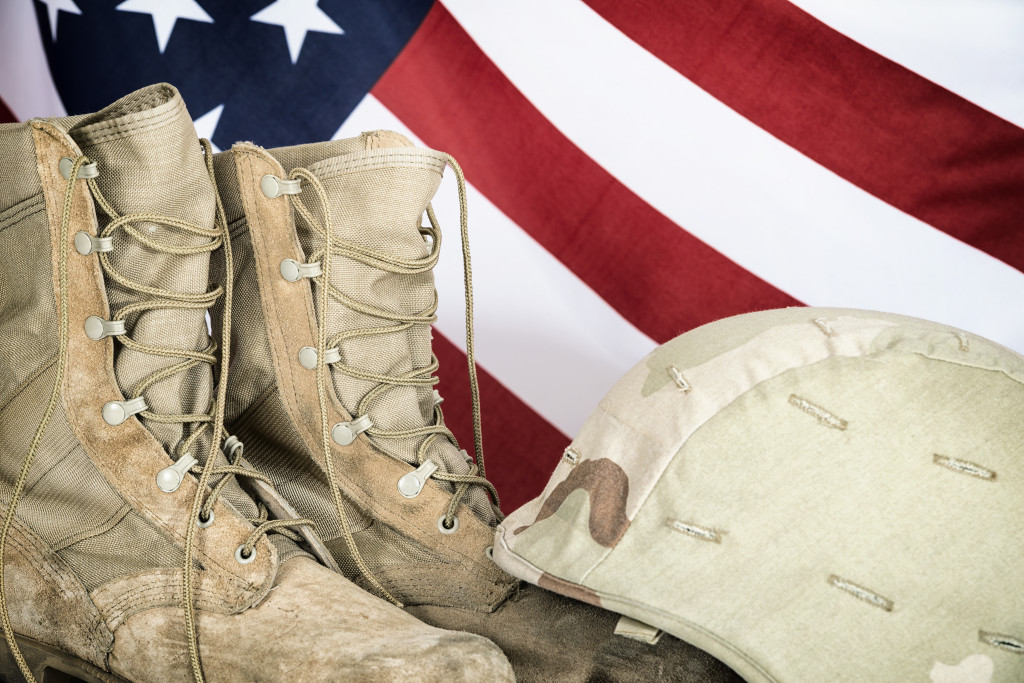
People sometimes ask me what part I enjoy most about serving as your Congressman. The answer may surprise you. My favorite part is calling young men and women from southwest Alabama to let them know they have been accepted into one of our nation’s military service academies. Each of our service academies offer students a first-class education while also helping equip the students with the skills needed to lead our nation’s military. Tuition, room, and board for the service academies are free as the academies are an investment in our military capability and leadership. The service academies include the United States Air Force Academy, the United States Naval Academy, the United States Military Academy (West Point), the United States Coast Guard Academy, and the United States Merchant Marine Academy. The United States Military Academy in West Point, New York, is the oldest of our service academies. It was founded in 1802. The newest academy is the United States Air Force Academy in Colorado Springs, Colorado, which was founded in 1954. In order to attend most of the service academies, students must have a nomination. Congressmen, Senators, the Vice President, and the President are the only ones who can nominate a student to a service academy. That said, just having a nomination will not guarantee that a student is admitted. The admission process is incredibly competitive and the acceptance rate is less than 20% for each of the academies. Once students complete their education, they must fulfill a service commitment. Most of these commitments are at least five years active duty, but the service requirement may be longer for certain specialized fields. I hope you will join me congratulating these nine outstanding individuals from Southwest Alabama who received a service academy appointment this year: Travis Amsbaugh, a homeschool student from Mobile, received an official appointment to the United States Air Force Academy; Spence Chanthavane, from Davidson High School, received an official appointment to the United States Air Force Academy; Paul Clark, from the Alabama School of Math and Science, received an official appointment to the United States Naval Academy; Patrick Howze IV, from UMS-Wright Preparatory School, received an official appointment to the United States Military Academy; Connor Kusch, from Mc-Gill Toolen High School, received an official appointment to the United States Naval Academy; Jacob LaPorte III, from James O’Neill High School in New York, received an official appointment to the United States Military Academy; Miller Mosley, from St. Paul’s Episcopal School, received an official appointment to the United States Air Force Academy; Charles Reichley, from Fairhope High School, received an official appointment to the United States Merchant Marine Academy; and Sean Weathersby, from Daphne Nigh School, received an official appointment to the United States Air Force Academy. There is no greater calling than those who decide to serve our country. In order to maintain the greatest fighting force on the face of the Earth, we must have outstanding men and women who are willing to serve in the military. I have had the chance to visit with these young men, and they will be a great addition to our Armed Forces. If you or someone you know would be interested in attending a military service academy, feel free to reach out to my office for more information. Eligible applicants must be at least 17 years old, be a citizen of the United States, have good moral character, demonstrate strong leadership skills, and achieve impressive scholastic achievements. • • • Bradley Byrne is a member of U.S. Congress representing Alabama’s 1st Congressional District.
Martha Roby: Next generation of military leaders
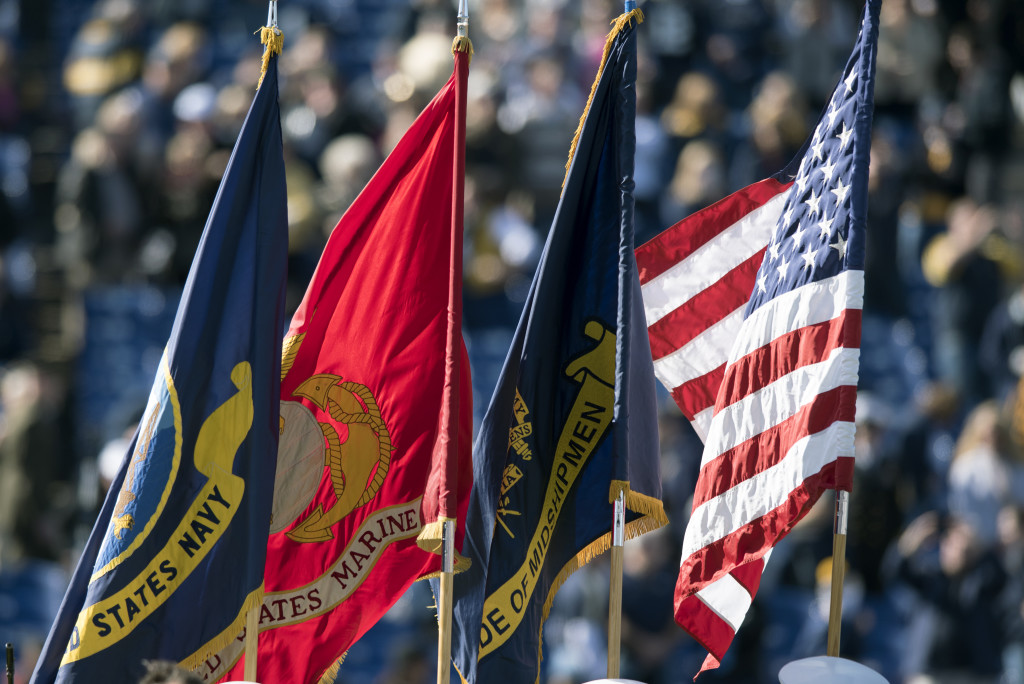
Each year I have the honor of nominating young men and women for an appointment to our nation’s military academies. The 2016 appointments have now been finalized, and I’m pleased to announce those who have received these prestigious selections. Our service academies are some of the most distinguished institutions in the world. Appointments are highly sought after and require high academic, character and leadership standards. Those appointed must commit to serve in the military for a minimum of five years upon graduation. My office conducts a rigorous process by which applicants from throughout Alabama’s 2nd Congressional District are reviewed and interviewed by an independent panel of service academy alumni, who recommend the nominations. Once a nominee has been officially appointed, I have the privilege of calling to personally inform them of the good news. It is a special privilege to be the first to thank these exceptional students for their willingness to serve their country and to wish them the best on their exciting endeavors. Listed below are students who were nominated through my office and have received appointments to U.S. military academies for 2016. I join their families, teachers and friends in congratulating them on such a special honor. Jaemin Francis Ashley: U.S. Military Academy (West Point). Jaemin, son of Eunhee and Thomas Ashley, is from Montgomery and attends Loveless Academic Magnet Program (LAMP). Elizabeth Sullivan Brakefield: U.S. Air Force Academy. Elizabeth, daughter of Jill and Lacy Brakefield, is from Dothan and attends the University of Alabama. Joshua Devon Dye: U.S. Military Academy (West Point). Joshua, son of Gary and Gwen Dye, is from Midland City and attends Northview High School. Nicholas Burke Forti: U.S. Naval Academy. Nicholas, son of John and Brenda Forti, is from Daleville and attends Phillips Academy in Andover, Massachusetts. Justice Cheylynn May: U.S. Naval Academy. Justice, daughter of Boyd and Brandy May, is from Enterprise, a graduate of Enterprise High School and currently attends the Naval Academy Preparatory School. Cory James Philpott: U.S. Air Force Academy. Cory, son of Karen Sue and Luke Francis Philpott, is from Andalusia and attends Straughn High School. William Watson Thomas: U.S. Military Academy (West Point) and the U.S. Merchant Marine Academy. William, son of Peyton and Jane Thomas, is from Midland City and attends Riverside Military Academy in Gainesville, Georgia. William Patrick Vincent: U.S. Naval Academy. William, son of Vincent and Leigh Vincent, is from Dothan and attends Houston Academy. Han David Zhang: U.S. Air Force Academy. Han, son of Ti and Cari Zhang, is from Dothan and attends Northview High School. Congratulations to each of these students on this significant achievement. If you or someone you know is interested in seeking a nomination to a service academy, please visit my website at www.Roby.House.gov to learn more. The deadline for submitting a 2017 application is Friday, November 4. ••• Martha Roby represents Alabama’s 2nd Congressional District. She lives in Montgomery, Alabama with her husband, Riley and their two children.
Daniel Sutter: To serve and to be served

Eighteen-year-olds can join our armed forces and fight to defend our freedom, but not legally buy beer. This inconsistency I think constitutes a disgrace, and highlights some weaknesses of our democratic process. Eighteen-year-olds have been eligible to serve in the U.S. military since our nation’s founding. Many states lowered the drinking age to 18 in the 1970s, but raised it back to 21 in the 1980s. I lost the legal right to drink twice during college. I believe in individual freedom, but freedom requires the capacity to understand the consequences of and take responsibility for our actions. Both restricting freedom until people reach maturity as well as making the most consequential life choices the last freedoms young people attain make sense. But joining the armed forces is arguably the most consequential of life’s choices. Military service can, of course, be fatal in wartime – more than 400 teenagers died in combat in Iraq and Afghanistan. Survivors of combat bear serious emotional scars. Telling 18-year-olds that they are mature enough to serve but not to be served is insulting. Such legal inconsistencies, however, rarely emerge explicitly. The Federal government is not a single person, but rather the executive and legislative branches plus thousands of bureaucrats. Different Congresses decided that 18-year-olds could serve but not be served. Consequently, laws which stay on the books forever comprise a weakness of our system. Some states have sunset provisions for legislation, which require periodic reauthorization of agencies and their demise if public support evaporates. Federal laws remain in effect until Congress repeals them. The mechanism of raising the drinking age illustrates the bankruptcy of our federalism. The National Minimum Drinking Age Act of 1984 withheld 10 percent of federal highway funds from states which did not comply. America’s founders created a federal republic where states would check the national government’s power. State governments addicted to grants from Washington cannot exercise the political deliberation which federalism requires. More problematically, Congress raised the drinking age, essentially imposing prohibition, largely to address drinking and driving by teenagers. Prohibition is troublesome both ethically (using the irresponsibility of some to justify denying freedom to others) and practically. Binge drinking is a significant problem on college campuses, yet is a predictable consequence of prohibition. When college students must break the law to drink, they will consume more when they drink. A higher drinking age might have appeared necessary to combat drinking and driving, but the necessity was really a product of government’s feeble efforts. Suspending or revoking driver’s licenses is used to punish offenders, but the intoxicated can still operate cars without a valid driver’s license. Too often the drunken drivers who kill others have already had a suspended license; nationally 20% of fatal accidents involve drivers without a valid license. Sobriety checkpoints are also used to combat drunk driving, but sometimes fail to ticket a single drunk driver. The Chicago Tribune found that only 7 percent of citations issued at checkpoints in Illinois were for drunk driving. Checkpoints produce tickets for driving without insurance and expired licenses or car tags, but get few impaired drivers off the road. Electoral politics’ emphasis on appearances and intentions over results helps explain the persistence of ineffective policies. Our representatives win re-election by appearing to act in our interest. Government does not have a bottom line like profit and loss, so voters have difficulty punishing representatives when their actions prove costly and ineffective. If 18- to 20-year-olds cannot be trusted with a beer, they shouldn’t be trusted with an M-16. Hopefully, this contradiction might soon be resolved. Technology is one source of hope. Ignition interlock systems, or “car breathalyzers” which require a driver to pass a breathalyzer test to operate his car, are more effective in preventing driving after drinking. And three states have recently considered lowering their drinking age, reckoning that additional alcohol taxes may offset the loss of Federal highway dollars. Perhaps the enduring lesson is not to trust a political process that produces such glaringly incongruous policies. ••• Daniel Sutter is the Charles G. Koch Professor of Economics at the Manuel H. Johnson Center for Political Economy at Troy University and the host of Econversations on TrojanVision.


